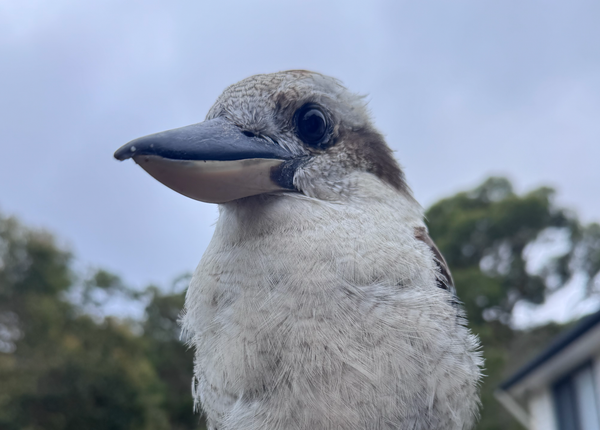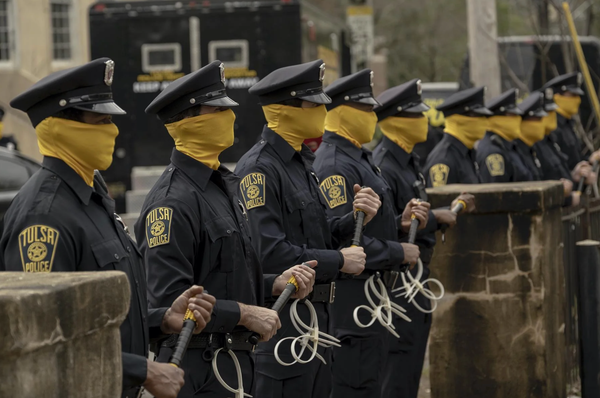Rolling Stone Gets Hoaxed About a Hoax
When it comes to AI band the Velvet Sundown, it's BS all the way down.

Hi,
Last week legendary music magazine Rolling Stone, home to some quite amazing journalism over the years, blasted an exclusive story:
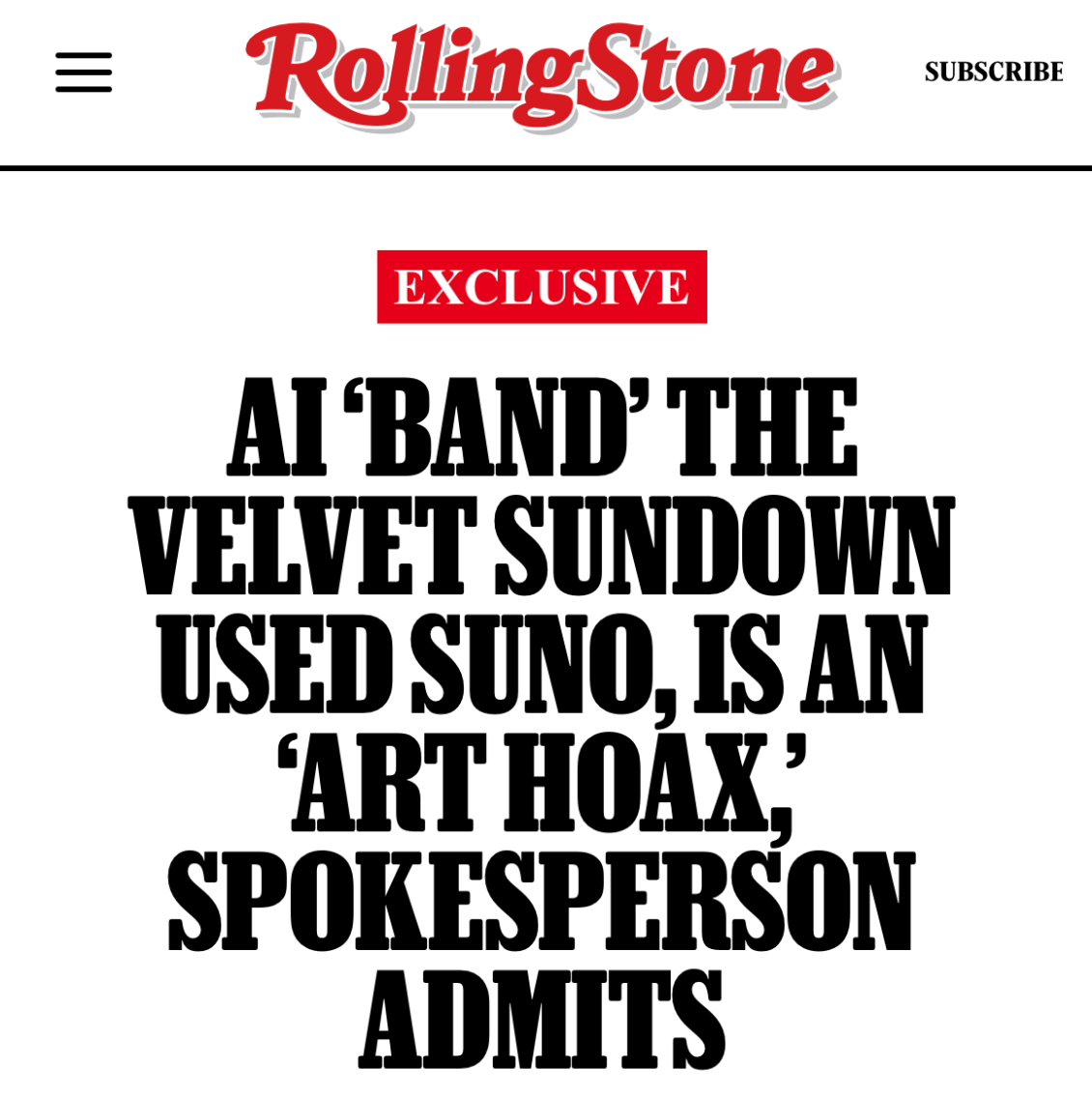
If you just woke up from a decade long coma, that headline would make very little sense.
If you missed it, last month a band called “Velvet Sundown” appeared on Spotify, quickly amassing nearly a million monthly listens.
Anyone with half a brain listening understood that the music was probably AI generated slop, boosted by Spotify because Spotify is an awful place owned by awful people.
While the songs sounded fine, they were also painfully and soullessly generic both musically and lyrically. The net result of me listening was wanting to hurl myself into the sea.
But none of this was proven, until Rolling Stone interviewed a spokesperson for the band last week, who said the band an “Art Hoax” generated by Suno, an AI music generator.
What Rolling Stone didn’t know is that the interview they’d been given was the hoax.
"I did something a little… untoward…”
A few weeks ago week, my friend emailed me something intriguing:
“Hi David,
Hope you’re doing well. I wanted to share something with you confidentially and see if you have any guidance on next moves in the media…
I did something a little… untoward…”
He went on to tell me that he’d noticed Velvet Sundown had no social media presence at all, so he’d created one on X, pretending to be the official account (for the fake band): x.com/Velvet_Sundown.
He said that he’d gotten about a million impressions in just two days — and now had journalists getting in touch wanting to interview him. He went on:
“I have a bunch of journalists circling like sharks who I have been delaying while I figure out what to do, including:
Rolling Stone
Variety
NBC
Wapo
Mashable
Fox 5 News
Many, many other mid tier ones. About half of them say they want a video call but some offered to do phone.”
Later in his email he reminded me of his history of hoaxes, which tended to seed fairly harmless false narratives, just to prove how easily misinformation and disinformation can spread.
“Anyway, that’s about the long and short of it. If you have any ideas from your professional experience about how to proceed and maximize my impact, I’d love to hear them! I figure this interest will all blow over in about 48 hrs or so max as we approach the long holiday weekend in the US. So trying to take action relatively quickly.”
Because I was about to set out on the road to do a short Flightless Bird live tour, I missed his email.
By the time I read his email, Rolling Stone had their headline. They’d spoken to my friend online and over the phone, assuming he was the real spokesperson for the fake band.
Today, Rolling Stone’s original headline announcing their exclusive interview with spokesperson for the Velvet Sundown no longer exists. It’s been changed to this:

This whole thing is just so silly. But also infuriating, in a way.
While I hate that this AI band got boosted by Spotify (and someone is making money off some soulless AI slop), I hate it more that all these journalists jumped on the fake account so quickly, assuming it was real. As my friend just emailed me:
“They didn’t even try to ask about why I’m not the official account linked via their Spotify!”
There’s an argument that journalists need to, at some point, take sources on good faith. But, even with arts reporting, that doesn’t cut it. It’s lazy, and in a rush for a headline bad actors can get their (fake) message out, and the disinformation spreads.
While Rolling Stone has changed their headline and added a disclaimer to their original piece, other outlets still carry the fake information:

Of course the other level of stupid is that the disinformation is probably real: Yes, the Velvet Sundown is AI, so essentially it is a hoax, and Suno or similar software was probably used.
I guess before I sign off here, I should hand over to my friend who wrote about this whole experience on his Medium page.
He said it was OK for me to republish it here.
I am Andrew Frelon, The Guy Running The Fake Velvet Sundown Twitter
My name is Andrew Frelon (not my real name), and I am the guy running the fake Velvet Sundown Twitter account.
I have an extensive professional background working for web platforms on safety and policy issues. Within that, I have developed a specialty in non-technical red teaming of web-based products and systems, including generative AI systems, to uncover vulnerabilities in order to fix them. I’ve also worked extensively in counter-disinformation, counter-extremism, OSINT, and related disciplines.
Additionally, I am an artist who has gained recognition for using generative AI for creative projects, some of which included using generative AI to generate and seed fake historical artifacts online in support of multiple interlocking art hoaxes. Generally speaking, I have been open and public about my involvement in those projects in order to advance the conversation around generative AI, and its risks and benefits. While I am protecting my identity this time, my aim is to do the same here.
What did I do with Velvet Sundown?
On June 29th, 2025, I began to see increasing coverage of a new music group on Spotify called The Velvet Sundown (TVS) which was causing a stir by allegedly using generative AI to create its music and accompanying promotional materials. This project intrigued me because of my professional and artistic background experimenting in similar spaces.
In fact, a year ago with a friend, we attempted much the same formula as TVS seemed to be using as an experiment on Spotify to see if we could get an entirely AI-generated band to trend and earn money. Consequently, I was familiar with the workflow to produce the songs and accompanying art, as well as the techniques used to purchase bot-based inorganic streams or listens of our tracks on Spotify. We had some initial success with those techniques, where our purchased streams seemed to influence the Spotify algorithm to play our songs for real users. The organic plays did not persist, and the project fizzled out, not making significant impact or earning much of any money.
Because of those experiences, I completely understood TVS as a phenomenon. I also noticed based on media coverage that there were not really any social media accounts associated with the band, apart from an Instagram account with a few obvious AI-generated images of the band on it. Suddenly, I had the crazy idea, what if I inserted an extra layer of weird into this story? What if I re-purposed an old Twitter account I’d barely used for another project, and made that into an “official” looking account for TVS?
Screenshot of the account I made included below. I changed my old handle to @Velvet_Sundown, and to round it off, I grabbed images from their promo materials to skin the account in order to make it look authentic and “official.”
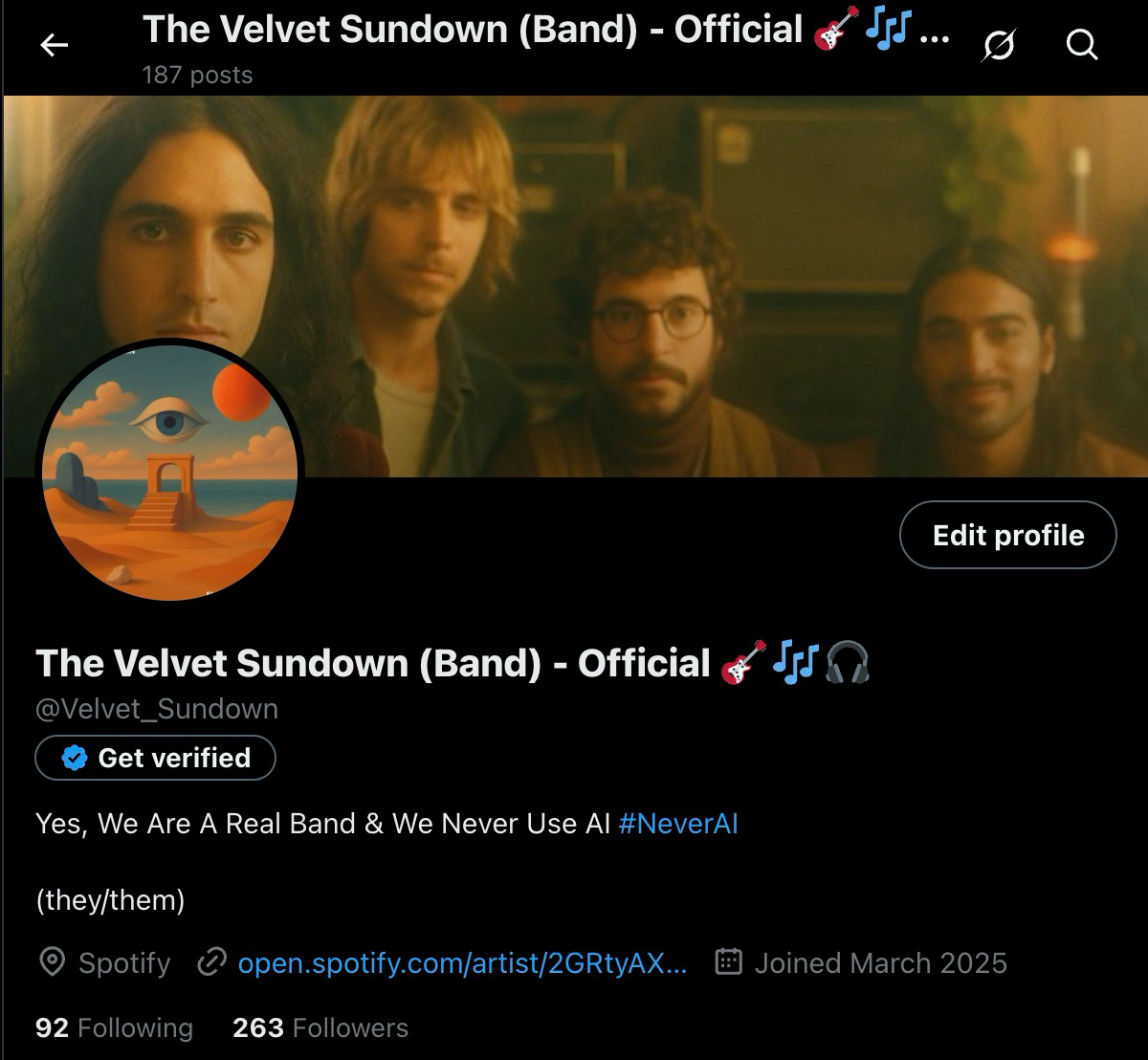
I also noticed in media coverage that since the band had not had much of any social media presence, none of the journalists covering the band had been able to reach out to them for comments or quotes to include in their articles. This left a gaping void in the narrative around the band, a situation that is dangerous for the reputation of any brand.
Because of these blank spaces in their story, and knowing from past projects something about the dynamics of journalistic news coverage, I thought it would be funny to start calling out journalists in a general way about not having reached out to “us” for commentary. I’m aware this is a requirement in the Code of Ethics of the Society of Professional Journalists. I’m also aware that because of this, journalists get very defensive when called out about these practices publicly.
Following that, I asked ChatGPT to write an angry tweet thread blasting journalists for not contacting us, and pinned this to the top of the profile. Then, I set about gathering all the existing coverage about TVS, and finding the articles’ authors on Twitter to the best of my ability, and then individually tagging them to blast them for not contacting us. This is an example of social engineering, and something I’ve seen from other red teaming efforts and my own projects, that humans are usually the weakest link in any technological system, and often quite easily fooled.
I also included in the thread and the account bio statements about how we, TVS, never used AI in our music or art, and everything we did was 100% human-generated. These claims were easily and demonstrably false to anyone looking at the profile, images, or listening to the songs. I knew this would be unbearably strong rage-bait for Twitter users, and I was not wrong.
The Waiting Game
While I waited, I found every single mention of the band on Twitter, and “liked” each post from my fake “official” account in order to get notifications into the accounts of everyone who mentioned us. People started visiting my impostor account and leaving comments, mostly very negative since so many people are against generative AI in the arts, for a variety of reasons.
Gradually, journalists began leaving comments asking for quotes to include in their existing articles. I started collecting their email addresses and set up a fake band Gmail account to talk to them. Several of the existing articles covering TVS were updated to include references to the Twitter account and the tweet thread without ever even spoken to us via email, voice, or video, and without apparently taking any time to verify whether or not the account was truly run by the same actor(s) behind the TVS Spotify account.
Some time within the first couple days of this (can’t recall when exactly), the TVS Spotify account owner added a link on their Spotify profile out to their own official Twitter account. Twitter lists them as having created the account in June (mine was from March), so most likely the 30th of June, I think. Most likely they did this after seeing that I had set up shop with a fake TVS account, and presumably they thought this would be enough to control the narrative. It was not.
Because I had a head start, and my content was a combination of over-the-top rage-bait and tongue-in-cheek satire, I easily gained more followers than them, and vastly more engagement. By the time the “real” TVS Twitter account posted its first piece of content (an AI video promoting their upcoming album) on July 1st, my account had already passed one million total impressions in only two days:

Around this time, new articles began coming out about how TVS disclaimed the use of AI in their work altogether, and citing my false Twitter account and angry ChatGPT-generated tweet thread. Precious few of that wave of articles’ authors even bothered to try to contact me about the account. Also on July 1st, in a fruitless attempt to reassert control of their public brand, the real TVS tweeted saying theirs were the only official social media accounts.
Thanks to tips from Twitter users, I realized at some point my direct messages (DMs) were turned off. Somehow, a few random people had found a way to private message me regardless (not sure how), but after I opened DMs to the public, the floodgates were opened of journalists wanting to contact the band (or my version of it anyway) to do video and voice interviews or in a few cases get text quotes for continuing coverage.
I pushed every journalist who DM’d me out to my fake band Gmail address to better keep track of all the requests, as they were coming in fast. The ones who requested video interviews, I either ignored, stalled, or requested doing email only responses to questions. A surprising number of journalists agreed to do email only interviews, but many of the higher-tier outlets cited this as being against their policy. That’s probably a good policy, but if you take no additional steps to verify the identity of the person you speak with by phone, it’s pretty much meaningless, in my opinion, since people can lie by voice or video just like they can by text.
I discovered another social engineering trick somewhere during this process accidentally that I could ask journalists who contacted me when they expected to publish their piece. They would courteously give me their deadlines, and then I would wait til about an hour or so before that time, and send them responses to their questions without leaving them much of any time for follow-up or further verification. Of course, I had ChatGPT write most of the replies to them based on guidance from me, and then I would edit them to read as more human and with details varied from one to the next.
Very few of the journalists who contacted me asked about the discrepancy between my TVS Twitter handle, and the real one used by the band on the Spotify profile. To the ones who did ask about it, I replied that we are a collective, and that means we have different views and approaches to our work, which we explore in parallel as part of our creative dynamic. I also admitted to them that the band was “deeply divided” about the more combative public approach I was taking with my account, and no journalist questioned me further on it during email interviews.
I decided to do a couple of voice calls to journalists who had contacted me on July 2nd. I invented the pseudonym “Andrew Frelon” (Frelon means hornet in French, an annoying insect which seemed a fitting mascot for my efforts). The first call was with the Washington Post, whose reporter was more adamant about pressing me on my actual connections to the band, and why there were two accounts, and so on. I prevaricated along the lines stated above, and he did not seem wholly convinced. Admittedly, it was my first performance, and I’m a lot less comfortable lying face to face or on the phone with one person who is acting in good faith than I am on Twitter, where legions of people routinely tell me to kill myself because they think I’m the “real” band.
Rolling Stone Calls
My second call was with Rolling Stone, and went much better. The reporter did not even bring up (that I can recall) the discrepancy around the two Twitter accounts, and instead was much more interested in pressing me on the band’s alleged use of AI. Apparently the reporter was quite familiar with Suno (an AI music generator which TVS most likely used), having covered them extensively. And little by little, he extracted the “truth” from me (or what he had pre-assumed was the truth), that yes, the band had used Suno to some extent, though I was vague about the specifics, and insisted there was plenty of human musicianship included in the process and finished product. He didn’t completely believe this claim, but I intentionally gave ground in order to cover the much bigger lie that I was involved with the band at all. And it seemed to pass muster, since they published the piece including my baldfaced lies which went unverified.
After that Rolling Stone piece came out, the account holder of the “real” TVS Twitter account tweeted saying “They’re trying to steal our identity…” and a video showing their actual band-controlled accounts, and including statements about “no fakes” which seems accidentally incredibly ironic for them to post. To capitalize on the confusion and vagueness of their tweet, I retweeted it so that it would look like it was coming from my Twitter account and/or that the two accounts were working together on behalf of the band.
All during this time, I have kept up my routine of “liking” every single reply to my tweets or any mention of TVS on Twitter. A great many people interpreted this behavior as “bot” activity, and assumed — and continue to assume — that the account I am running is actually a bot backed by ChatGPT.
I noticed the morning of July 3rd, the day following the release of the Rolling Stone false “confession,” that Fast Company published a piece based on fake quotes I sent them, and that they did not reference or apparently read the Rolling Stone article. Also, the news segment “What The Tech” appears to have been released to its multiple local affiliates without referencing or reading the Rolling Stone piece. In it, the reporter even misidentified the band as “The Velvet Sunset.” Even NBC seems to have run a segment about the band on the evening of July 2nd, after the Rolling Stone piece came out without having referenced it at all.
Also noteworthy: yesterday, July 2nd, Billboard’s AI music reporter invited me to do a Q&A about the band and the future directions of AI-generated music. While I perhaps have some insights in this direction as a creator who has made extensive use of AI, I have decided to decline any further requests for comment or interviews. I’ve already made all the points I wanted to make. No need to beat a dead horse.
In an ironic turn of events, the real TVS Twitter account published an “official statement” (screenshot below) saying that my fictitious persona, Andrew Frelon, does NOT represent their fictitious band. Naturally, I retweeted it from my fake TVS account saying “This is a huge problem for us. Please RT and share!”
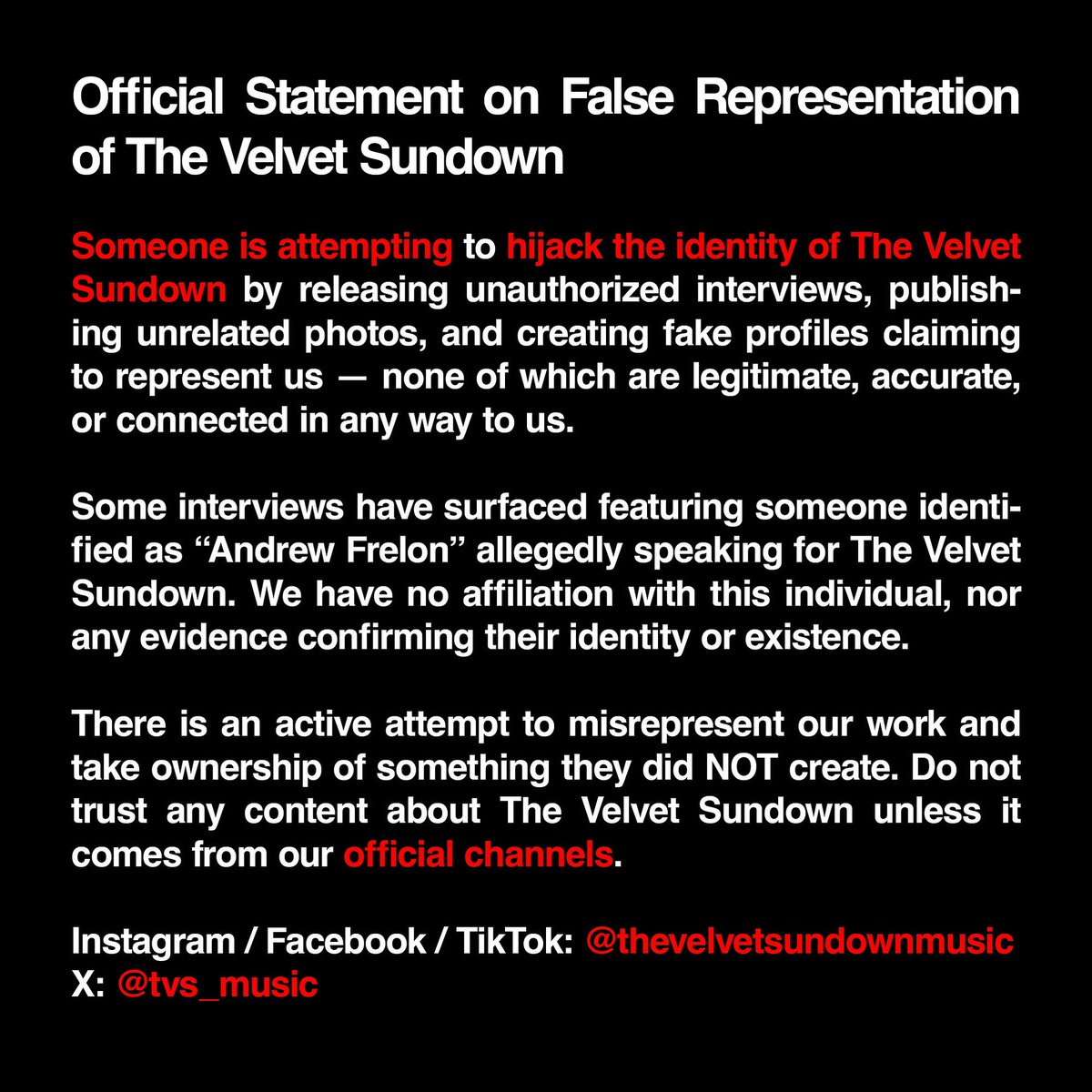
Conclusion
My findings suggest that there are numerous and large gaps in the verification process used by the majority of journalists, most likely occurring especially when they are chasing after a large and timely story such as that surrounding TVS. (Also, to be fair to them, I exploited a confusing situation around account ownership based on my professional knowledge in this domain. But they still should have done better.)
It seems that in the heat of the moment as journalists are trying to race to be the first to publish, many will disregard best practices around fact-checking and verification, as well as perhaps aspects of journalist codes of ethics which might be less convenient in meeting their tight deadlines.
I see what I have done as a kind of red-teaming of the media & platform ecosystems at large. I write this with the intent not of shaming anyone named in it, but in the hopes of inspiring a more careful approach to prevent the publication of blatantly false information by people with worse or more dangerous agendas than my own foolish experiment.
-Andrew Frelon (not his real name)
David here again.
I think this is just such an incredibly good example of the horrible, murky world we are entering here. Not only is AI giving us vague products that are inherently dishonest and obfuscating, but bad actors (or in this case, an artist proving a point) can jump in and make it even more messy.
And journalists can fall for it all, hook, line and sinker. And for the public trying to make sense of this new world, it will get really fucking scary.
Because it won’t be about some dumb AI band, it will be about an assassination, ICE, murder, global warming, teacher strikes, the unhoused, dictatorships, war, genocide.
David.

